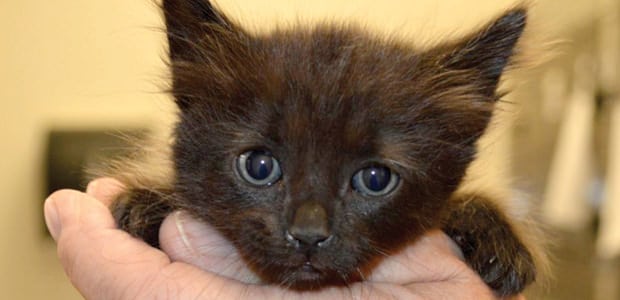Searching for Volunteer Foster Families
By Melissa Gable
Public Information Officer
Maricopa County Animal Care and Control
Four-week-old “Apollo” was found in a home with more than 80 cats; “Prickly Pear” and “Thorny” were abandoned at Maricopa County Animal Care & Control’s (MCACC) West Valley Animal Care Center in Phoenix; Chihuahua puppy “Bonnie” was surrendered to the shelter when she was just a few days old.
These are just some examples of the types of animals that MCACC receives on a regular basis. Most of these puppies and kittens are simply too young to be put up for adoption. That’s why MCACC needs YOUR help. The agency is searching for foster families who are willing to open their hearts and homes to animals in need.
While the issue exists year-round, the spring months typically mark the start of puppy and kitten season. It’s not uncommon for up to 100 kittens to be surrendered to MCACC shelters in one day. Litter upon litter of underage kittens; some so young they lack the ability to eat solid food. Unfortunately, the agency does not have the resources to care for these tiny creatures. But rather than euthanize, MCACC is looking for foster families who are willing to step in and care for the animals until they are ready for adoption.
The length of time a foster animal stays in a foster home depends on each individual dog or cat and their particular situation. Typically, underage puppies and kittens are ready to come back to the shelter when they are at least two pounds and approximately eight weeks of age. Dogs and cats recovering from upper respiratory infections may require one or two months in foster care, while animals recuperating from surgery to repair fractures might require more time.
Those who agree to foster underage puppies and kittens must also be willing to spend time playing, training and socializing the animals so that they grow into well adjusted (and easily adopted) dogs and cats. Fostering these babies can be a messy job and foster volunteers must be patient, ready, and willing to take on the challenges surrounding potty training.
Although it’s hard work, fostering a homeless dog or cat is extremely rewarding. Just ask MCACC foster mom Karen E., “Apollo was taken from a cat hoarding situation in Gilbert. He was living with dozens of other cats and was not socialized. He had no idea what it meant to be a kitten. He didn’t know how to play, he was afraid of people and strange situations.”
“Initially, we kept Apollo away from the other animals at home just to make sure he was healthy. We didn’t want to expose him or our resident pets to any contagious diseases. When it was time to meet the other animals, he bonded quickly with our cats and slowly learned to like the dogs. It wasn’t long before he was cuddling in bed next to us every night. Although it was tough to take him back to the shelter, we sent him off with a goodie bag of his favorite toys and a brief write up with his likes, dislikes, etc. He was adopted by a kind woman from Ahwatukee within one hour of being at the shelter’s PetSmart Charities Everyday Adoption Center.”
To become a MCACC foster family is simple! The agency hosts monthly foster volunteer orientations at its West Valley Animal Care Center (2500 S. 27th Avenue, Phoenix). The orientation provides potential foster families with a brief overview of the shelter’s needs and what is required from foster families. Foster families must agree to cover the food and supply costs of caring for the animals. However, MCACC’s veterinary team provides medical care and medicine to those foster animals requiring medical attention. For more information, visit www.maricopa.gov/pets and click on “How You Can Help.”








